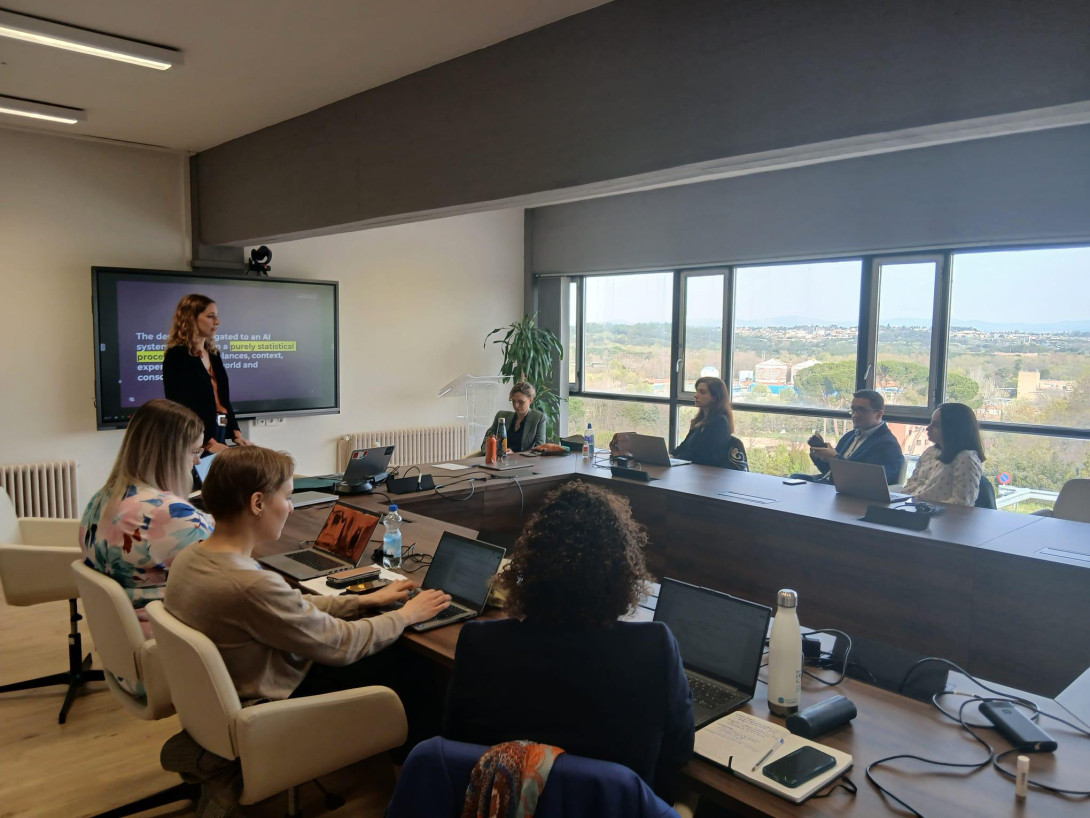
On 1 April, law enforcement partners of the FERMI project gathered in Madrid for a hands-on workshop led by Immanence, focusing on one of the most pressing issues facing public service today: how to design and deploy technology, and particularly artificial intelligence, in a way that is ethical, inclusive, and socially responsible.
As digital tools become more deeply embedded in public institutions, especially in high-stakes domains such as law enforcement, the importance of understanding their broader impact on individuals and society cannot be overstated. This workshop provided a space for reflection, collaboration, and applied learning around these challenges.
Morning Session: Ethics, Regulation, and Governance
The day began with an in-depth discussion of the ethical, regulatory, and governance dimensions of emerging technologies. Participants explored the responsibilities that public authorities hold when implementing AI systems, particularly in contexts where decisions can significantly affect people’s lives.
Discussions centred on the need for:
- Ethical frameworks that go beyond compliance to consider justice, fairness, and human dignity.
- Governance structures that are transparent, accountable, and sensitive to community needs.
- Regulatory alignment that protects fundamental rights while enabling innovation.
The session underscored that technology should serve society, and not the other way around, and that anticipating potential harms is essential when working in sensitive, high-impact environments.
Afternoon Session: From Principles to Practice
In the afternoon, theory met practice. Using a realistic law enforcement scenario, participants engaged in group exercises to apply responsible innovation principles to real-world decision-making.
Through this hands-on approach, the workshop highlighted:
- The complexity of turning high-level values such as accountability, fairness, and transparency into actionable design decisions.
- The value of collaborative reflection in spotting unintended consequences early.
- The importance of inclusive perspectives in identifying those who may be most affected by technological interventions — particularly marginalised or minority communities.
Designing for Impact: A Core Message
A consistent theme throughout the day was the imperative to design technology with people at the centre. This means moving beyond human-centric design as a concept, and instead actively engaging with the lived experiences of those impacted by technology.
In particular, participants reflected on how technology design intersects with:
- Fundamental rights
- Public trust
- Structural inequalities
When technologies are implemented without this lens, they risk reinforcing or exacerbating existing injustices. Thoughtful, inclusive, and responsible design is not just good practice — it is a moral and civic duty.
Looking Ahead
The Madrid workshop served as a timely reminder that technology design is never purely technical. It requires deliberate, ongoing attention to ethics, context, and consequences. As the FERMI project continues to explore how to enhance government capabilities through digital innovation, sessions like these are essential to ensuring that those innovations are not only effective, but just.